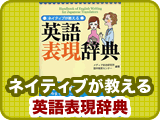(1)
 |
規則的な比較変化
(a)
 |
-er、-estをつけるもの
1. ふつうの場合:語尾にそのまま-er、-estをつけます。
 |
rich-richer-richest、 clever-cleverer-cleverest、
narrow-narrower-narrowest |
2. 語尾が-eの場合:eを取って-er、-estをつけます。
 |
fine-finer-finest、noble-nobler-noblest |
3.
 |
語尾が「短母音+単子音字」の場合:最後の子音字を重ねて-er、-estをつけます。 |
 |
hot-hotter-hottest、thin-thinner-thinnestなど |
4. 語尾が「子音字+y」の場合:yをiにかえて-er、-estをつけます。
 |
pretty-prettier-prettiest、early-earlier-earliestなど |
|
(b)
 |
| more、mostをつけるもの: |
語尾が-ful、-less、-ive、-ing、-able、-ousなどの2音節語および3音節以上の語の場合 |
| useful(有用な) |
more useful |
most useful |
| active(活動的な) |
more active |
most active |
| charming(魅惑的な) |
more charming |
most charming |
| famous(有名な) |
more famous |
most famous |
| difficult(困難な) |
more difficult |
most difficult |
| diligent(勤勉な) |
more diligent |
most diligent |
|
[注1]
 |
単音節の語でもlike(似ている)、real(真の)、strange(不思議な)、wrong(誤った)、right(正しい)などの語はふつうmore、mostをつけます。 |
[注2]
 |
3音節以上の語でも、もともと-er、-estをつけるものに「否定接頭辞」をつけたものは、-er、-estをつけます。
 |
unhappy(不幸な)、unpleasant(不愉快な)、incomplete(不完全な)など |
|
[注3]
 |
複合語については、一般に語の結合が緊密で1語のように感じられるものはその前にmore、mostをつけ、それほど緊密でないものは、-er、-estをつけます。
 |
old-fashioned (流行おくれの) → more old-fashioned
up-to-date (現代風の、先端の) → most up-to-date
large-sized (サイズの大きい) → larger-sized
hard-working (勤勉な) → hardest-working |
|
[注4]
 |
最上級を表す-estのかわりに、接尾辞の-mostをつける語もあります。
easternmost〔westernmost、southernmost、northernmost〕
(最も東方の〔最西の、最南の、最北の〕)
innermost(最も奥深い)、outermost(最も外部の)など |
|

![]()




